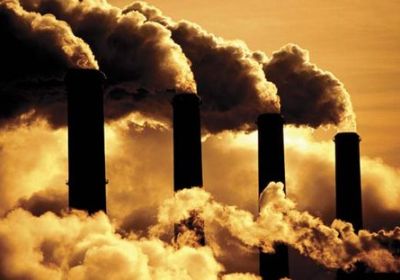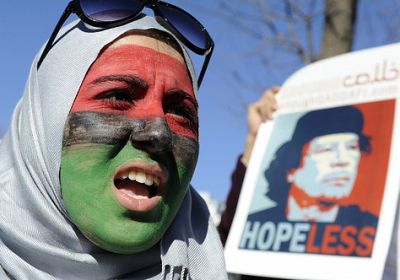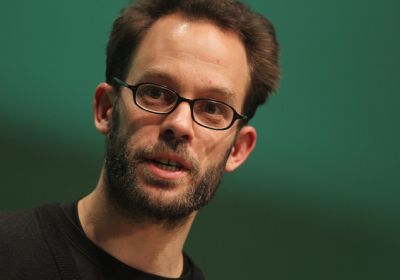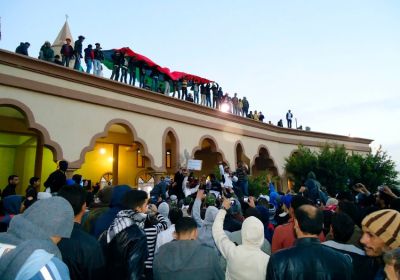
-
 The US Army announced on March 2 that it has charged 22-year-old Private First Class Bradley Manning with a further 22 charges. Manning is being held on suspicion of having leaked classified information to WikiLeaks. One of the new charges is “aiding the enemy”. This means Manning could face the death penalty if convicted. So far, Pentagon and military officials have found no direct link between Manning and WikiLeaks founder Julian Assange.
The US Army announced on March 2 that it has charged 22-year-old Private First Class Bradley Manning with a further 22 charges. Manning is being held on suspicion of having leaked classified information to WikiLeaks. One of the new charges is “aiding the enemy”. This means Manning could face the death penalty if convicted. So far, Pentagon and military officials have found no direct link between Manning and WikiLeaks founder Julian Assange. -
 When the Kyoto Protocol was being negotiated in 1997, the European Union opposed the United States’ proposal to introduce carbon trading and “offsetting” as a form of compliance with mandated greenhouse gas emissions reductions. Instead, the EU favoured coordinated policies and measures. But by 2001, when the US unilaterally abandoned climate negotiations, the EU had already reversed its position and enthusiastically supported delivering the fate of climate policy to a speculative market.
When the Kyoto Protocol was being negotiated in 1997, the European Union opposed the United States’ proposal to introduce carbon trading and “offsetting” as a form of compliance with mandated greenhouse gas emissions reductions. Instead, the EU favoured coordinated policies and measures. But by 2001, when the US unilaterally abandoned climate negotiations, the EU had already reversed its position and enthusiastically supported delivering the fate of climate policy to a speculative market. -

The protests that began on February 14 in Madison, Wisconsin against an anti-union bill have continued to grow. On February 26, an estimated 100,000 people defied sub-zero temperatures to rally against the bill. Wisconsin Governor Scott Walker’s bill would outlaw collective bargaining for public sector workers, as well as slash pay and conditions. However, several events have combined to compound pressure on public sector workers and unions resisting the attacks. It remains to be seen whether this pressure will result in the proposed bill becoming law.
-
The article below is abridged from SocialistWorker.org. Protest messages to the Zimbabwe embassy in Australia can be sent to zimbabwe1@iimetro.com.au . * * * The resistance sweeping the Arab world and the repression against it has reached southern Africa, where more than 50 activists have been arrested by the Zimbabwean regime of President Robert Mugabe. Those arrested include former member of parliament Munyaradzi Gwisai and other members of the International Socialist Organization (ISO) in Zimbabwe.
-
The US government says it wants “stability” in the Arab world. That sounds reasonable, right? However, as US author and political analyst Noam Chomsky explained to Press TV on February 24, for the US government, “stability” means something other than what most people would think. “You have to remember that stability is a cold code word,” Chomsky said. “Stability doesn't mean stability; it means obedience to US domination … [It] doesn't mean that things are calm and straightforward, [it] means they are under control. That of course it is inconsistent with democracy.
-
 The regime of Muammar Gaddafi has escalated its violence against rebel forces seeking to bring it down. On March 6, opponents of the regime were reported to be in control of several cities, especially in Libya’s east. AlJazeera.net said on March 4 that anti-government protests in the capital, Tripoli, had been met with tear gas by security forces. Opponents said Az Zawiyah, a town just 40 kilometres from Tripoli that is home to an oil refinery, was mostly under rebel control.
The regime of Muammar Gaddafi has escalated its violence against rebel forces seeking to bring it down. On March 6, opponents of the regime were reported to be in control of several cities, especially in Libya’s east. AlJazeera.net said on March 4 that anti-government protests in the capital, Tripoli, had been met with tear gas by security forces. Opponents said Az Zawiyah, a town just 40 kilometres from Tripoli that is home to an oil refinery, was mostly under rebel control. -
In the face of renewed protests in Tunisia's capital, Tunis, Tunisian prime minister Mohamed Ghannouchi resigned on February 27. This was one of the key demands of the popular movement, which has continued to push for democracy in the aftermath of the January 14 toppling of dictator Zine El Abidine Ben Ali. In another concession to the mass movement, the interim government announced that elections for a constituent assembly to draft a new constitution would be held on July 24, AlJazeera.net said on March 4.
-
Stop the massacre in Libya! Power to the people A February 26 statement by the Socialist Alliance in solidarity with the people's uprisings in Libya and the Arab world * * * The Socialist Alliance extends its full solidarity to the people of Libya now being brutally repressed for demanding an end to the corrupt and unjust regime of dictator Colonel Muammar Gaddafi.
-
 As the wave of popular uprisings has spread across the Arab world, a flurry of articles have appeared suggesting Venezuelan President Hugo Chavez could be the next “dictator” to be overthrown. Such arguments follow a pattern in the corporate media of slandering the Chavez government and the revolutionary process it leads. They aim to conceal the real threat that haunts imperialism: that the Arab world may follow the example of Venezuela and other countries in Latin America — and break away from Western hegemony.
As the wave of popular uprisings has spread across the Arab world, a flurry of articles have appeared suggesting Venezuelan President Hugo Chavez could be the next “dictator” to be overthrown. Such arguments follow a pattern in the corporate media of slandering the Chavez government and the revolutionary process it leads. They aim to conceal the real threat that haunts imperialism: that the Arab world may follow the example of Venezuela and other countries in Latin America — and break away from Western hegemony. -

A huge battle of the right of public sector workers to organise has broken out in the state of Wisconsin. In response to a law pushed by Republican Governor Scott Walker, protesters have held a sit-in at the state legislature in Madison, Wisconsin’s capital, since February 14.
-
 WikiLeaks has announced it will pursue legal action against disgruntled former employee Daniel Domscheit-Berg, whose recently released book, Inside WikiLeaks, slams Julian Assange's leadership and character in a series of allegations. Some of the allegations appear serious. Others are hopelessly trivial.
WikiLeaks has announced it will pursue legal action against disgruntled former employee Daniel Domscheit-Berg, whose recently released book, Inside WikiLeaks, slams Julian Assange's leadership and character in a series of allegations. Some of the allegations appear serious. Others are hopelessly trivial. -
 On February 22, Muammar Gaddafi boasted on state TV that the Libyan people were with him and that he was the Libyan revolution. His comments came as his dwindling army of special guards and hired mercenaries tried to drown the popular revolution in blood. AlJazeera.net reported on February 21 that civilians were strafed and bombed from helicopters and planes. Snipers with high-powered rifles fired into unarmed crowds.
On February 22, Muammar Gaddafi boasted on state TV that the Libyan people were with him and that he was the Libyan revolution. His comments came as his dwindling army of special guards and hired mercenaries tried to drown the popular revolution in blood. AlJazeera.net reported on February 21 that civilians were strafed and bombed from helicopters and planes. Snipers with high-powered rifles fired into unarmed crowds.